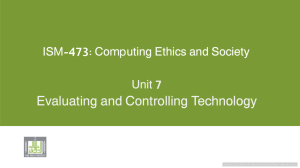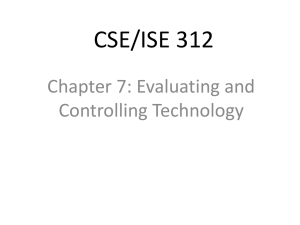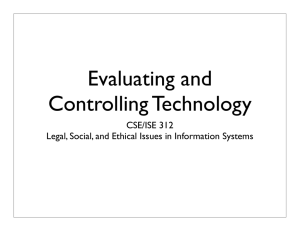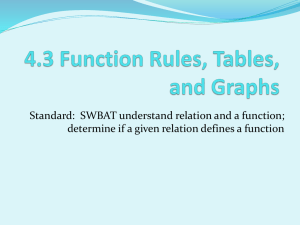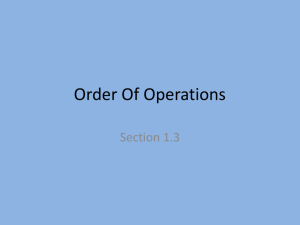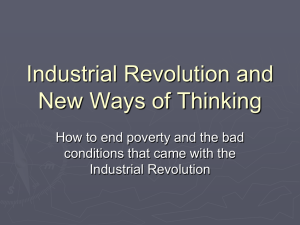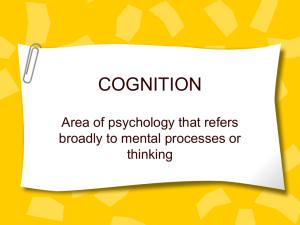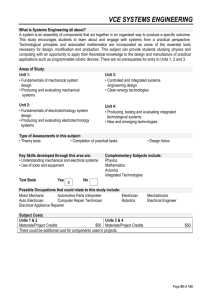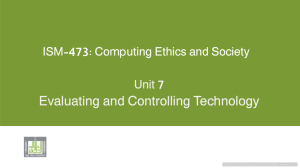Evaluating and Controlling Technology
advertisement
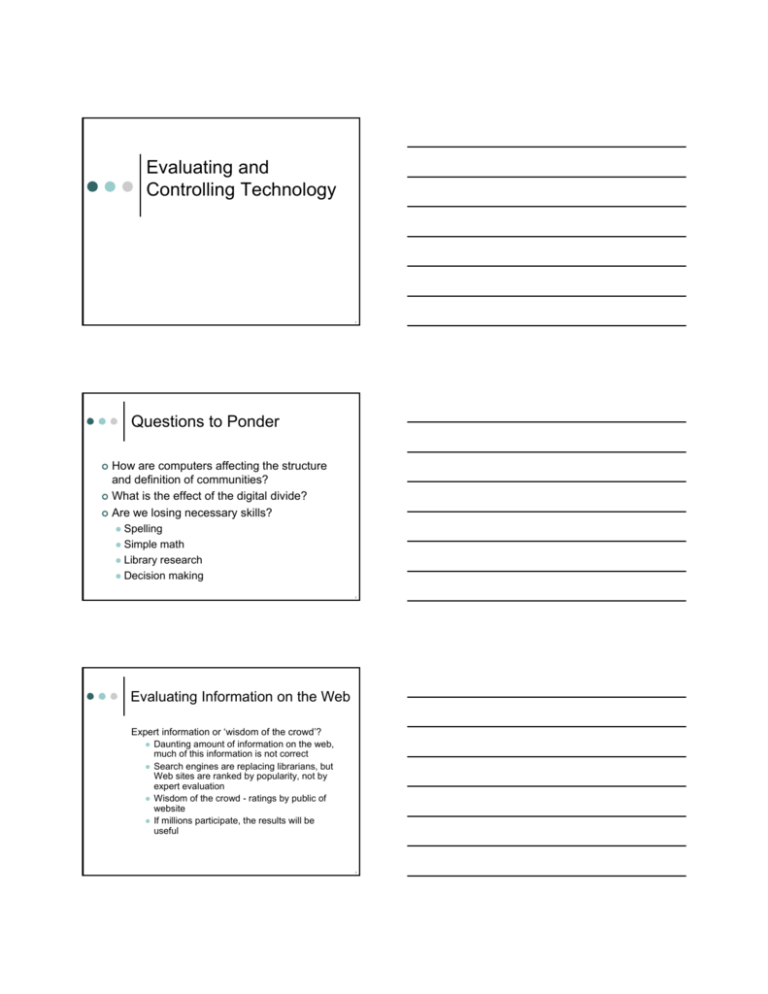
Evaluating and Controlling Technology 1 Questions to Ponder How are computers affecting the structure and definition of communities? | What is the effect of the digital divide? | Are we losing necessary skills? | Spelling Simple math z Library research z Decision making z z 2 Evaluating Information on the Web Expert information or ‘wisdom of the crowd’? z Daunting amount of information on the web, much of this information is not correct z Search engines are replacing librarians, but Web sites are ranked by popularity, not by expert evaluation z Wisdom of the crowd - ratings by public of website z If millions participate, the results will be useful 3 Evaluating Information on the Web (cont.) | Wikipedia: z z z Written by volunteers, some posts are biased and not accurate Although anyone can write, most people do not Those that do typically are educated and experts 4 Evaluating Information on the Web (cont.) | | | Wisdom of the crowd z Problems of unreliable information are not new z The Web magnifies the problems z Rating systems are easy to manipulate Vulnerable viewers z Less educated individuals z Children Responsibilities of site operators z Should identify user-supplied content z Make clear which information has been verified 5 Evaluating Information on the Web (cont.): | | | Manipulation of images: z Movies and videos use special effects to add creativity and enjoyment of entertainment z People can use technology for deception and fraud z Ease with which we can modify digital images and video Should news agencies modify images and videos? Faking photos is not a new phenomenon; more people can do it now because it’s easy 6 Computer Models | Evaluating Models z z z How well do the modelers understand the underlying science or theory? Models necessarily involve assumptions and simplifications of reality How closely do the results or predictions correspond with the results from physical experiments or real experience? 7 Computer Models (Cont.) | Why models may not be accurate z We might not have complete knowledge of the system we are modeling z The data describing current conditions or characteristics may be incomplete of inaccurate z Computing power may be inadequate for the complexity of the model z It is difficult, if not impossible, to numerically quantify variables that represent human values and choices 8 Computers and Community | Internet Use: z z z z z z May create isolation from family, in-person friends, and neighbors. Creates long-distance associations focused on special interests. Reduces or eliminates direct contact with customers and clients. Contributes to the formation of electronic relationships. Allows for teleworking from almost any location. May lead to Internet “addiction.” 9 Computers and Community | E-commerce vs. Downtown and Community z Market Dynamics Issues: • What do consumers want? • How much are consumers willing to pay? • What is the competition? z E-commerce: • What draws consumers to purchase products and services online? z Local Business: • What draws customers to purchase products and services at traditional stores and businesses? 10 Information Haves and Have-Nots | The Digital Divide z Factors contributing to access (or lack thereof) to computers and information systems: • • • • • • Developed country. Individual wealth. Age. Gender. Ethnic background. Politics. 11 Information Haves and Have-Nots | Universal Service Guarantee z Universal Access to the Telephone • In the 1930s, access to the telephone was deemed necessary in order to function in society. • The Communications Act of 1934 requires telephone companies to provide telephone service to the poor. z Universal Access to the Net • Advocates stress that access to the Net is necessary in order to function in today’s society. • Critics argue that the cost to supply universal access to the Net for the poor is an unfair and unnecessary burden. 12 Information Haves and Have-Nots | Trends In Computer Access • Declining costs for hardware, software, and connectivity contribute to greater access. • Easier to use and understand. • Gender gap has vanished. • Age gap is narrowing. • Families perceive Web access to be important. • Non-white households trail in access. • Rural, isolated, or remote regions often have limited access. • Some businesses offer home access as a benefit. • Public-access becoming more common. 13 Loss of Skills and Judgment | Writing, Thinking, and Memory z Computers Affect the Way We: • Write in the form of spell- and grammarcheckers and desktop publishing. • Research, due to online archives, periodicals, and search tools. • Think, because a vast amount of data is available, quickly, from all parts of the globe. • Communicate using text, graphics, audio, and video. 14 Loss of Skills and Judgment | Abdicating Responsibility z People may rely too much on computers for decisions about: • Approval of loans or insurance coverage. • Assessment of student, teacher, and school administrator progress. • The arrest of certain individuals. • How to make a particular business decision. • The treatment of a disease with a particular medicine. 15 Evaluations of the Impact of Computer Technology | The Neo-Luddite View z Criticisms of Computer Technology: • • • • • • • • Causes massive unemployment and loss of job skills. We use them because they are there. Causes social inequality. Source of social disintegration; they are dehumanizing. Separates humans from nature and destroys the environment. Benefits big business and big government. Thwarts development of social skills in children. Solves no real human problems. 16 Evaluations of the Impact of Computer Technology | Accomplishments of Technology z Some Benefits: • Food prices have dropped worldwide. • Raw materials are more abundant and prices of natural resources have declined. • Wages and salaries have risen in both rich and poor countries. • New substitutes for natural resources have been created. • New forms of crop management. • Improved transportation of food from field to table. • More diseases now treatable or eradicated. • Improved, safety-minded products for home, school, and work. 17 Prohibiting Bad Technologies Q: Is it possible for society to prohibit certain technologies? 18 Prohibiting Bad Technologies | Choice of Values z Technology Advocates • People can choose to use a technology for good or ill. • Influenced by society, technology does more than it was designed to do. • People adopt technologies that give us more choices for action and relationships. z Technology Critics • Technology is not “neutral.” • Big business and governments make decisions about technology. • Once created, technology drives itself. 19 Prohibiting Bad Technologies | The Difficulty of Prediction z Guessing the Consequences of Technology • • • • How will people use the new technology? How will people benefit from the new technology? Will people like the new technology? How much will people pay for the new technology? • What problems will the technology cause? 20 Prohibiting Bad Technologies | The Difficulty of Prediction (cont’d) z Example Objections to Speech-Recognition Systems • “The problem is so enormous that only the largest computers will ever be able to manage it.” • “…a speech-recognition machine is bound to be enormously expensive,…” • “What can it possibly be used for?” • “…a long step toward a fully automated battlefield.” • Governments can use speech recognition to increase wiretap efficiency and effectiveness. 21 Prohibiting Bad Technologies | The Difficulty of Prediction (cont’d) z The Decision-Making Process About Introducing New Technologies Should: • • • • • Be decentralized and noncoercive. Produce what people want. Work well. Respect the diversity of personal opinions. Be relatively free of political manipulation. 22 The Future??? | “The telephone is so important, every city will need one!” — Anonymous | “My personal desire would be to prohibit entirely the use of alternating currents. They are unnecessary as they are dangerous.” — Thomas | “I think there is a world market for maybe five computers.” — Thomas | “Computers in the future may... only weigh 1.5 tons.” — Popular | “There is no reason for any individual to have a computer in their home.” — Ken Olson, president of Digital Equipment Corp., 1977 “The U.S. will have 220,000 computers by the year 2000.” — Official Edison, 1899 J. Watson, chairman of IBM, 1943 Mechanics, 1949 | forecast by RCA Corporation, 1966. (The actual number was close to 100 million.) 23
